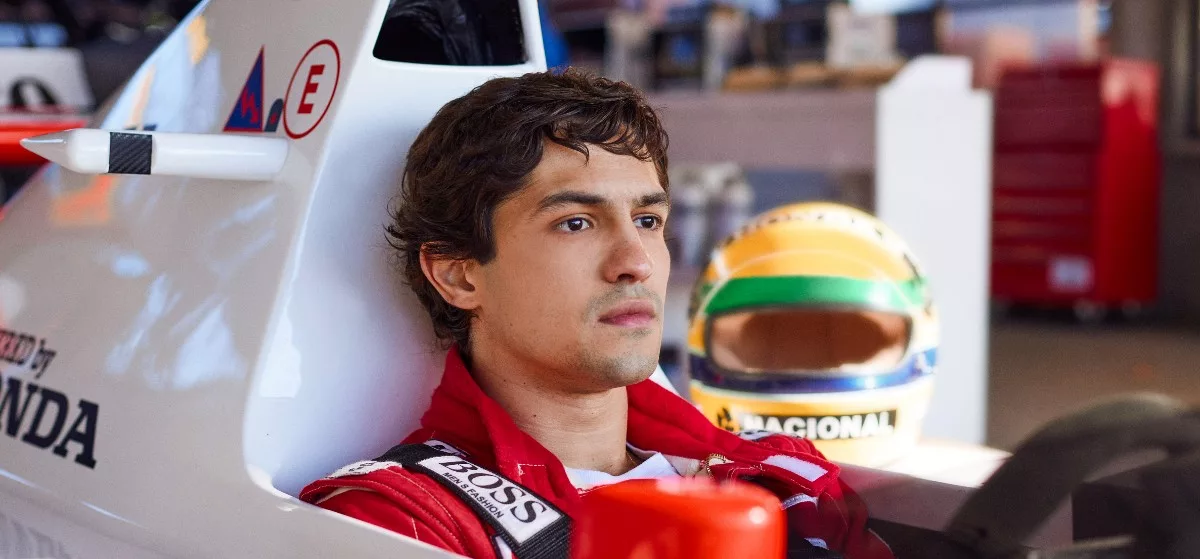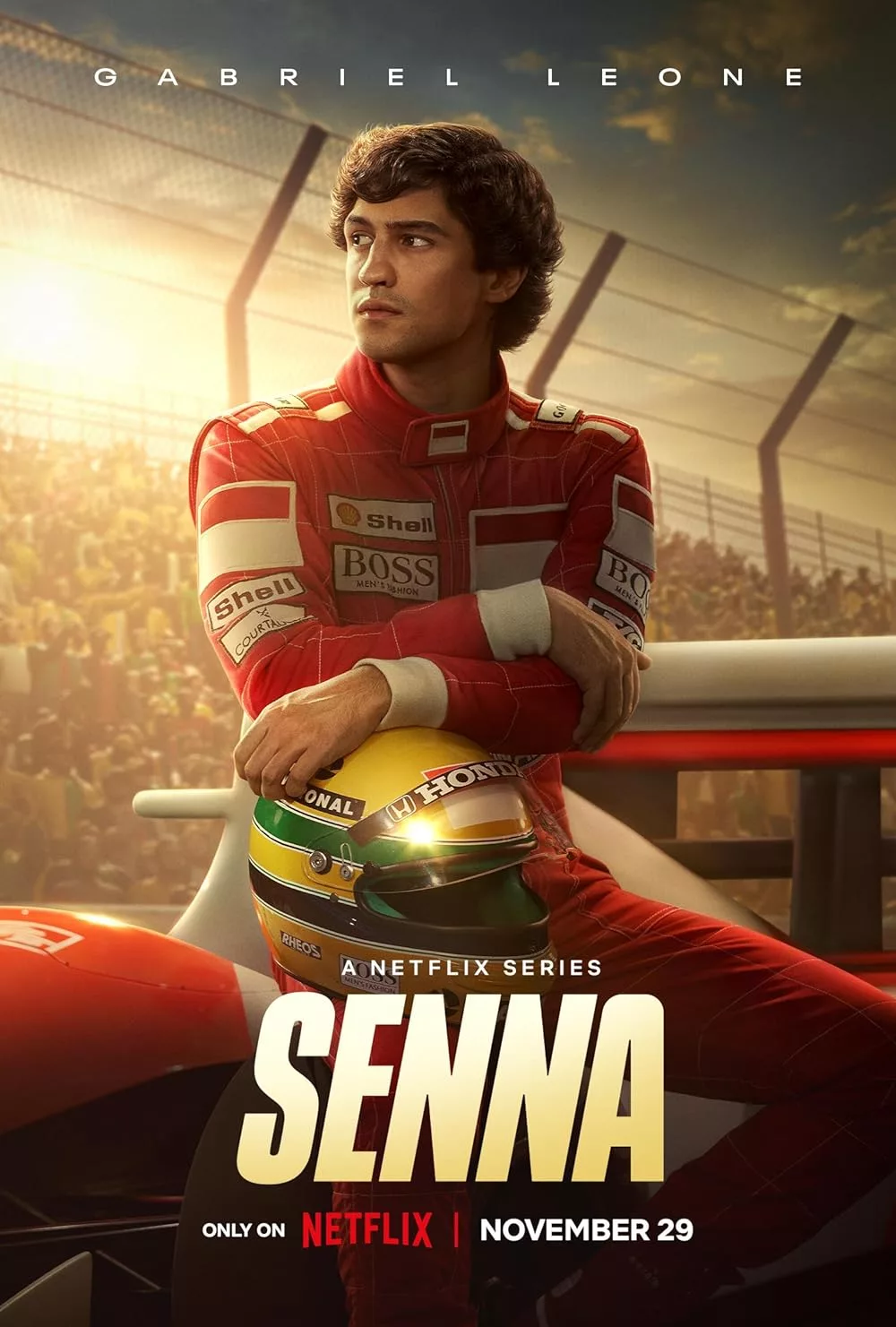The name Ayrton Senna conjures a lot of feelings, both for the native Brazilian and the Formula 1 fan: A stellar racer, young, good-looking, an advocate for the hardships facing his home country while he had his brief time in the spotlight. Then, in 1994, at the tender age of 34, he died tragically in a car crash while taking pole position at the San Marino Grand Prix. Asif Kapadia’s stellar 2010 doc “Senna,” with its elegantly-assembled archival footage crafting narrative intrigue from documentary alacrity, is already the defining cinematic statement on the racer’s life. And while Netflix’s latest attempt to dramatize his drive-fast-die-young career carries a kind of propulsiveness, the limited series runs out of gas long before the checkered flag.
Showrunner Vicente Amorim builds a kind of “Crown”-esque legend-making narrative for Senna, here played by the baby-faced, charismatic Gabriel Leone. Starting, naturally, with the crash that will end his life, the show flashes all the way back to childhood in Brazil, where his well-off father cultivates in him his love of driving. (The show even surmises that baby Senna will discover his shimmer behind the wheel, pretending to vroom-vroom a parked car as a child.)
From there, we see him rising through the ranks in professional go-kart racing, through Formula Ford and beyond; we see his ambition, his zeal to win races (which sometimes clashes with the leagues’ preference for points over wins), and the risks he takes to succeed. Here, we see his struggles with anti-Brazilian racism in the European circuit, and how his devil-may-care racing approach butts heads with figures like Alain Prost (Matt Mella), his French racing teammate-turned-bitter rival.
It all comes down to Leone, whose committed turn patches some of the many holes in the show’s engine. He’s practically the spitting image of Senna, carrying the man’s real-life swagger and vulnerability in equal measure. Often, the script doesn’t give him all that many layers to play—Amorim’s vision of Senna is single-minded to a fault—but he carries the burden, frustration, and joy of Senna’s position with admirable grace.
But the real star is the races themselves, high-octane sequences cut and shot expertly to capture the feeling of immense speed and Senna’s place in the field. While some of the later ones feel a bit more CGI-assisted (they don’t quite go “Speed Racer” enough for my taste), there’s a sense of grounded practicality in the gear shifts, tire squeals, and close-up low-angle shots of Senna through his steering wheel. They stand up decently to similar sequences in “Rush” and “Ford v. Ferrari,” with presumably a much smaller budget. (It helps that each new race offers Senna a novel wrinkle to overcome—driving through torrential rain, or trying to peel off duct tape he’s placed on his engine to give him an advantage before it burns him up—that keeps them feeling unique.) In one early race, the show holds agonizingly on one shot of a tiny centipede crossing the road while Formula One cars zoom towards it. What a lovely visual representation of speed.
What works less well, unfortunately, is “Senna”‘s two other loves besides racing: women and Brazil. Senna famously advocated for the welfare of the people of Brazil during his time, depicted here simply through rapt Brazilian children watching agape through the TV, or the odd newspaper headline. But we get very little about the actual political turmoil happening in Brazil at the time, or his philanthropic efforts to help address child poverty, which turns Senna into more of a mascot than a serious political symbol.
As for his love interests, “Senna” largely treats them as disposable sex symbols or mirrors against which we can gaze at the man’s greatness. His first wife, Lilian (Alice Wegmann), becomes little more than his first test of loyalties to his racing career; his later affair with Brazilian TV star Xuxa (Pámela Tomé) also feels a bit perfunctory. Curiously, the one woman who stays with him through the course of the series is entirely conjured for the show: Laura (Kaya Scodelario), a bilingual journalist who mostly shows up to flirt, exposit to us about Senna’s place in his career at the time, and serve as avatar to Senna’s adversarial relationship to the press.
At six hour-long episodes, “Senna” zooms by at a decent pace, even as its sports-story tropes start to wear thin the longer you watch it. (Oh, are you saying that Senna only cares about winning to the exclusion of all else? And that that single-mindedness has a deleterious effect on his personal life? How novel!) It might make for scrumptious holiday viewing, something to pop on in the background while all the dads huddle around and watch the Formula One cars thrum and zoom past the screen. But if you want a tighter, more honest, more innately cinematic poem on the man’s career, the 2010 doc remains in pole position.
Six episodes screened for review. Currently streaming on Netflix.




















